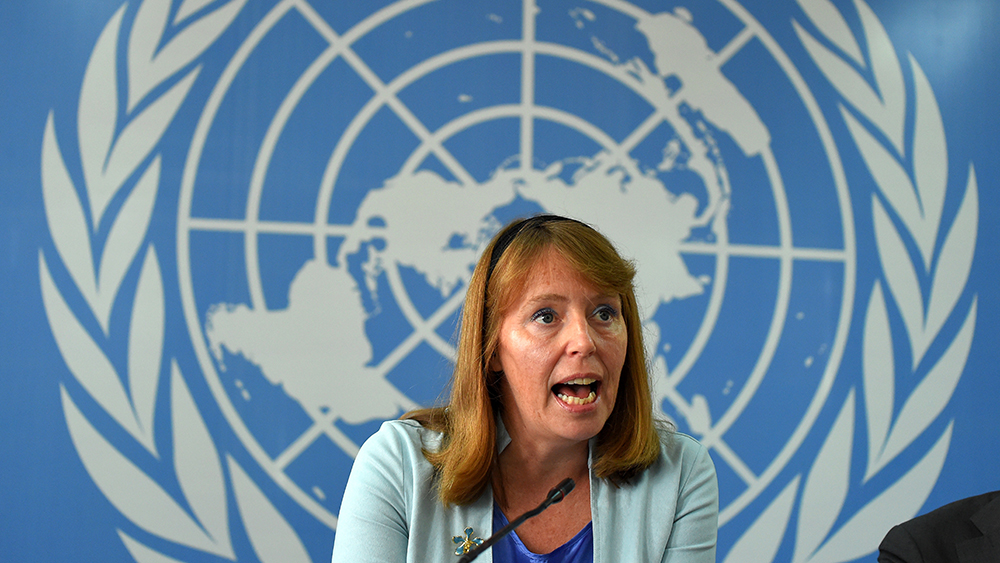Cambodia should quickly and transparently try opposition leader Kem Sokha, who is currently detained at his home on charges of “treason,” or drop the case against him, a United Nations expert said Thursday at the end of her sixth visit to the Southeast Asian nation.
Kem Sokha, the president of the now-dissolved Cambodia National Rescue Party (CNRP), is being held under house arrest after being released from prison on Sept. 10, 2018, a year after he was detained for allegedly plotting to overthrow the government—charges widely seen as politically motivated.
The release of the 65-year-old opposition leader from pre-trial detention carries the conditions that he must stay within a block radius of his home, cannot meet with CNRP officials or foreigners, and cannot speak at or host any rallies or political activities.
He still faces up to 30 years in prison if convicted of treason.
In a statement issued at the end of her 11-day fact-finding mission, Rhona Smith, the U.N. Special Rapporteur on the situation of human rights in Cambodia, said she remained concerned that Kem Sokha is detained under “judicial supervision with his rights and freedoms curtailed” more than 14 months after his arrest, noting that she had been denied access to him and other detainees during her visit.
“I also call for the release of Kem Sokha from restricted detention and for the swift conclusion of the investigation in his case to ensure his right to a trial within a reasonable time based on a clear and transparent evaluation of the evidence, or for the charges to be dropped.”
Smith also asked authorities to lift the convictions with suspended sentence of prominent activist Tep Vanny, who was granted a royal pardon in August after spending more than two years in prison for her role in a protest over a land grab, and of a group of current and former staffers with local rights group ADHOC, and to drop pending charges against two former RFA journalists accused of “espionage.”
While the special rapporteur welcomed small improvements in judicial services she believes will help bring justice to ordinary Cambodians, she urged the country’s courts to be timelier in trial proceedings and called for an end to pre-trial detention.
“Access to justice also requires speedy trials and I am concerned at the time taken to conduct trials and the significant number of people in pre-trial detention,” Smith said.
“I repeat my recommendations to use pre-trial detention only when absolutely necessary in accordance with Cambodia criminal procedure code; to carefully document the use of pre-trial detention; and to regularly view the ongoing need in each case.”
She also addressed concerns that Cambodia’s courts are beholden to Prime Minister Hun Sen and his ruling Cambodian People’s Party (CPP), urging the Ministry of Justice and judicial institutions to “take more active steps to combat corruption and strengthen judicial independence and impartiality.”
Government responds
Shortly after Kem Sokha’s arrest, Cambodia’s Supreme Court dissolved the CNRP for its alleged role in his plot, setting the stage for a resounding win by the CPP in the country’s July 29 general election—polls widely dismissed as unfree and unfair.
Hun Sen also launched a months-long crackdown on NGOs and the independent media in the lead up to the vote that drew condemnation from Western governments who have accused the strongman of rolling back democratic freedoms in Cambodia.
Despite criticism over Hun Sen’s governance, Keo Remy, head of the Cambodian Human Rights Committee, told reporters following a meeting with Smith earlier this week that there are no human rights violations in the country.
On Thursday, Council of Ministers spokesman Phay Siphan dismissed Smith’s concerns over Kem Sokha’s detention as “an insult and an attack on our judicial system,” adding that his case is “being processed by the court.”
“If she understood the law well, she would not have made this appeal,” he said, suggesting that Kem Sokha “find good attorneys” to represent him at his trial.
“[She] shouldn’t refer to our judicial system as a political tool and laugh at it.”
Phay Siphan added that Cambodia “has no need for evaluation, because we are busy resolving all pressing issues.”
Reported by RFA’s Khmer Service. Translated by Samean Yun. Written in English by Joshua Lipes.
UN Expert Says Drop Charges Against Cambodia Opposition Leader, Barring Speedy Trial
Rhona Smith also calls for an end to pre-trial detention at the end of her sixth visit to Cambodia.

The UN Special Rapporteur on the situation of human rights in Cambodia, Rhona Smith, speaks during a press conference in Phnom Penh, Nov. 8, 2018.